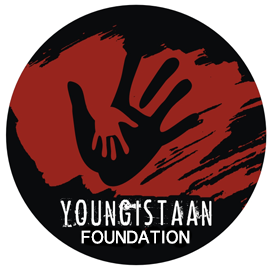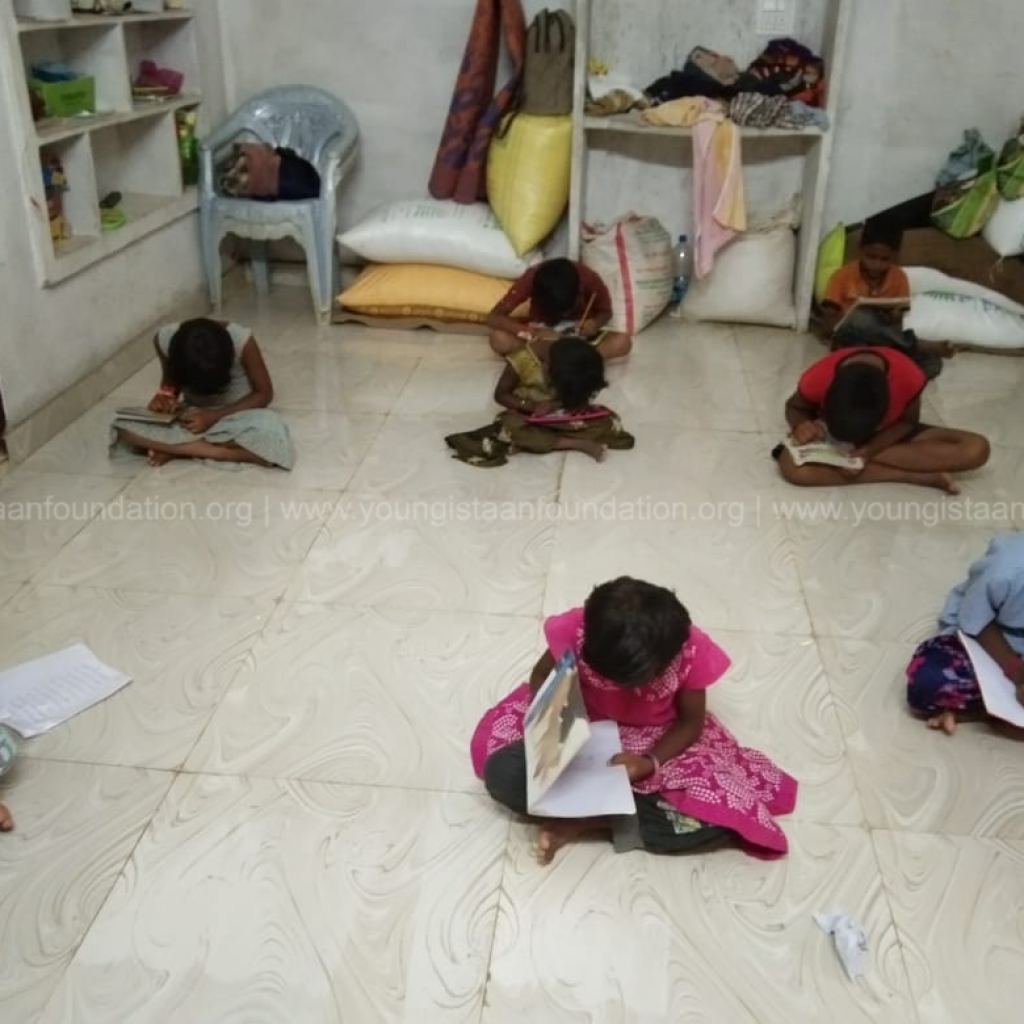
When the COVID-19 struck and began to cripple lives and livelihoods, our first impulse as concerned Akkas and Annas was to ascertain our children’s physical safety and emotional well-being.
Were they unharmed? Were they vulnerable?
Were they afraid? How were they coping?
Was there enough to eat today? What about next week?
As if the everyday multidimensional struggles of poverty weren’t debilitating enough, now our children had to face a new unknown; the health crisis came with equally threatening long-term implications of learning loss and further marginalization of children who were ‘behind grade level’ to begin with, thereby, worsening inequity.
Giving ourselves time to come to terms with a ‘locked down’ version of community, we wrestled with conflicting ideas and expectations – do we dive into designing creative online lessons or retain our primary focus on children’s emotional needs? How will ‘caring’ look and feel online?
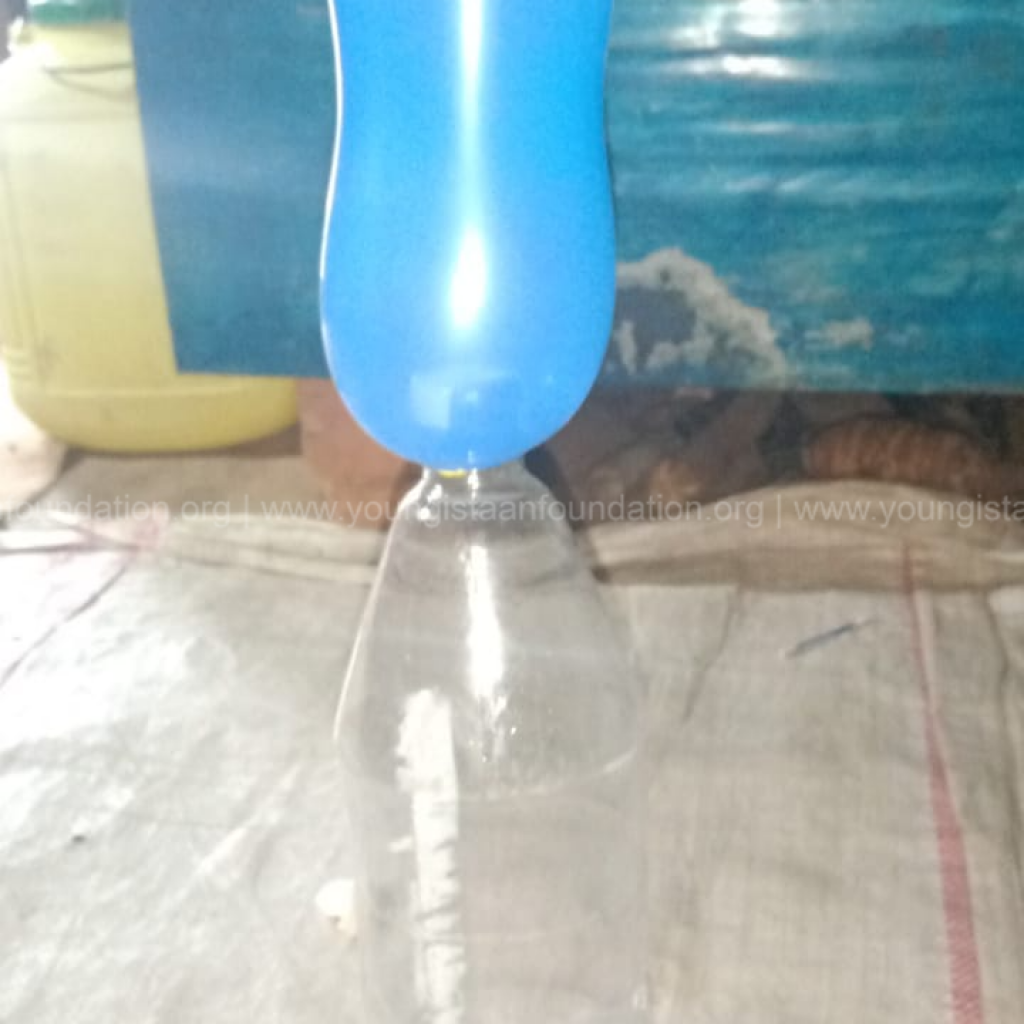
What was Youngistaan Foundation’s contingency plan hoping to achieve? A stopgap measure to mitigate learning loss? We deliberated and debated, attended webinars (some of which were genuinely helpful), reached out to other experienced educators, and then went back to the drawing board!
In the meantime, our magnificent volunteer-mentors made numerous calls, tirelessly, reaching out to every single parent/guardian and covering over 100 households in a bid to understand their stories. While our teams collected information from parents on access to technological infrastructure and know-how, they also made time to listen to the families’ grievances and concerns. Parents complained about their children and the children complained about being held captive indoors!
We made a conscious decision to use technology prudently and wisely. It would not replace our pedagogy of care and student-centric approaches. It is a means to an end and is not necessarily a panacea! We made a promise to address our children’s emotional well-being before anything else; continuing to respect their needs and motivations.
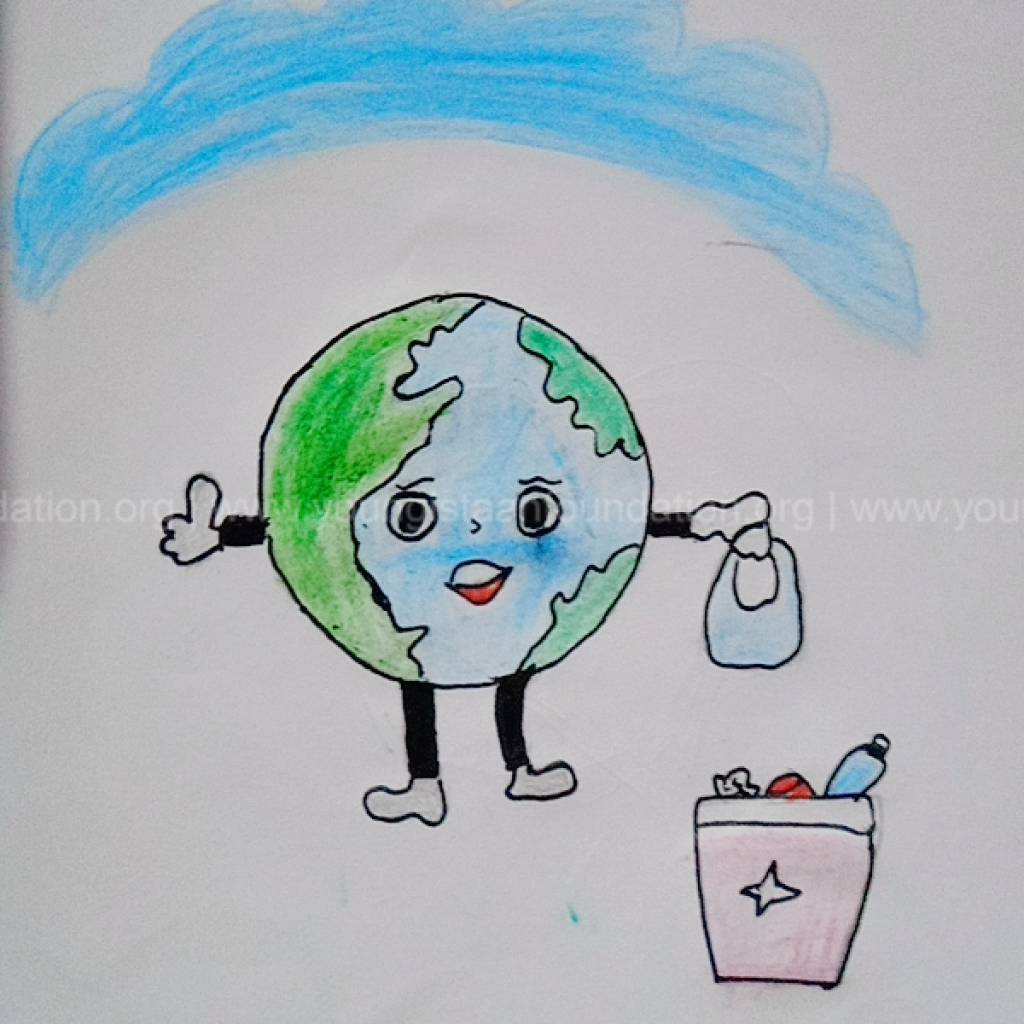
So, took off, the first leg of Youngistaan Foundation’s asynchronous remote learning initiative, ‘Jugnu – Little Lights Take Flight’. The most critical task at hand was to reconnect with the children and habituate them to the new format of communication and learning, and to involve parents so that they become active participants in their children’s learning journeys.
Our children’s responses have been heartening and have kept us going!
Each day, our volunteer-mentors engage with their young students via regular phone calls, video calls, and written/voice messages on WhatsApp. This includes crisp, engaging instructional videos (topics reflect student choice), fun math puzzles, songs, interactive games, and many stories including digital content from Pratham Education Foundation. Each volunteer-mentor is assigned a set of children, and is responsible for engaging them in meaningful tasks and following up.
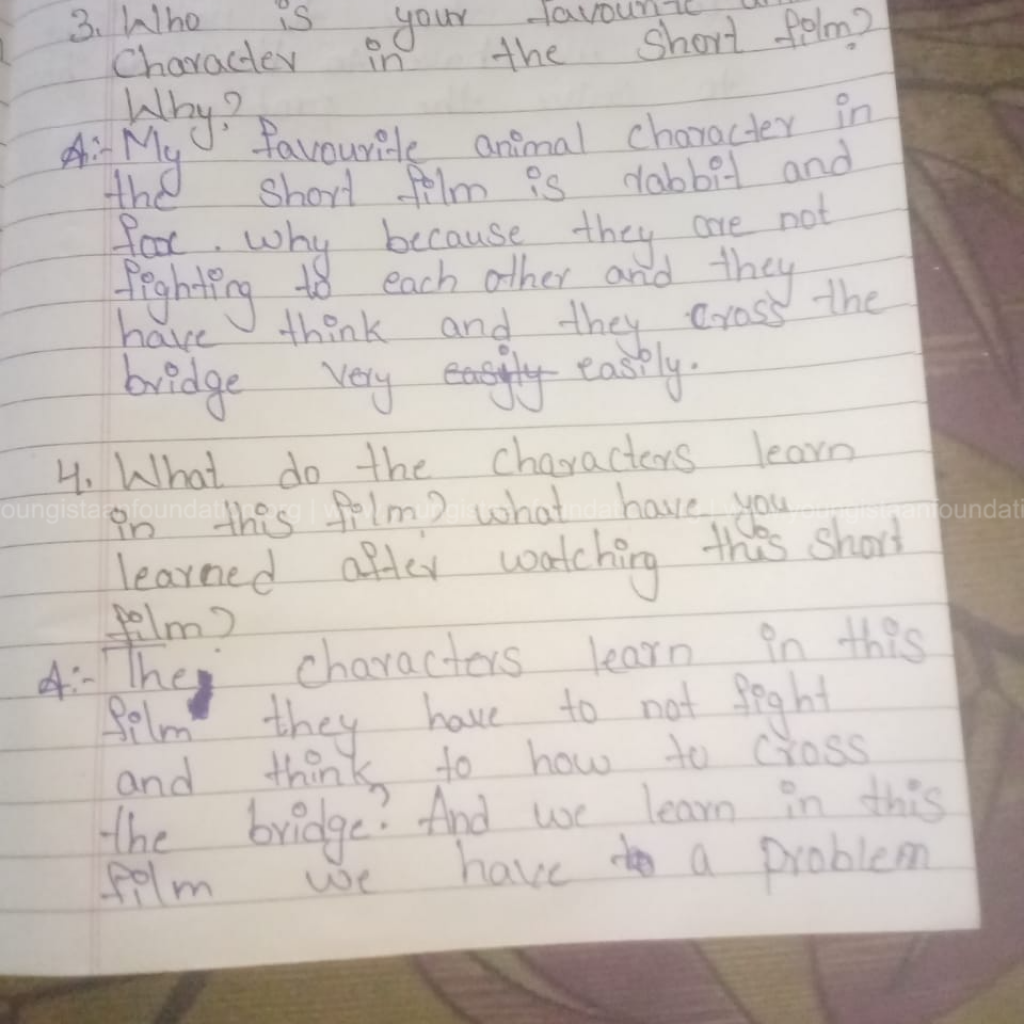
We cannot deny new challenges arise every day! Be it access issues, individual learning difficulties, or wavering engagement levels. These keep us on our toes and that is never a bad thing!
Every crisis brings with it the opportunity to build our capacities and endurance. Ironically, the use of remote platforms has yet again reinforced our belief that technology cannot replace deep, authentic human interaction. So, we must find ways where it can supplement the teaching-learning process in an appropriate and meaningful manner.
The only reason we have been able to connect and sustain communication and learning, notwithstanding the roadblocks, is because we have invested immense energy and time in building caring and empathetic relationships with our students over the years. That is our superpower!



